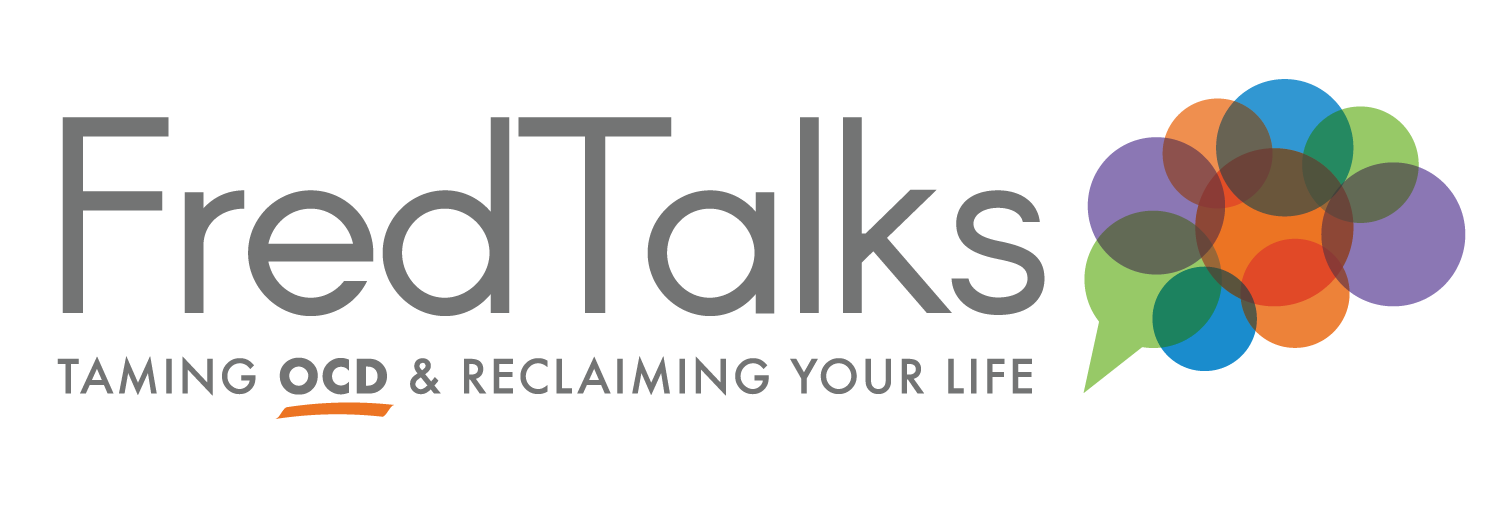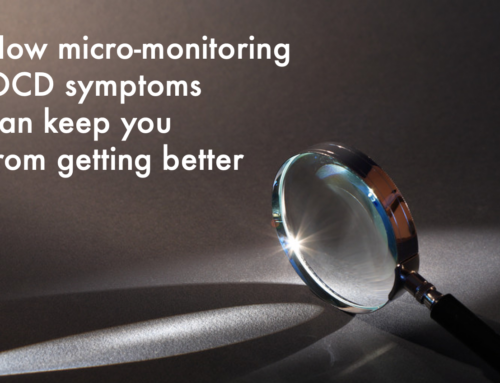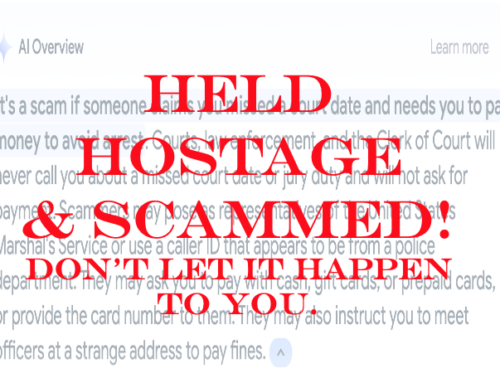 When was the last time you blamed someone or something for a negative occurrence in your life? I’m asking because I used to be an expert at blaming—both myself and other people—and for that I blame (pun intended) my OCD.
When was the last time you blamed someone or something for a negative occurrence in your life? I’m asking because I used to be an expert at blaming—both myself and other people—and for that I blame (pun intended) my OCD.
Fault vs. blame
You might say, “Well, that person deserves to be blamed. It [bad thing that happened] was his fault!”
However, there’s a difference between fault and blame. “Fault” is used to assign responsibility based on someone’s actions. “Driver A was at fault because he didn’t yield to oncoming traffic” for instance. Blame, on the other hand, is an emotional term, one often weighty with intense feeling. “I blame Driver A for all the time and energy I had to waste getting my car fixed after he ran into me.” You can hear the anger in that statement. And that anger makes sense, because typically when something has happened that feels blameworthy, it involves loss. Loss creates grieving, and anger can be a part of that grief.
Blame is a type of certainty
 As a person with OCD, I used to be so good at assigning fault and then expending a lot of energy engaged in blame for one simple reason: blame is a proxy for certainty and control, two of OCD’s favorite things. If we can blame someone or something for negative events, then the world feels less unstable. Less out of control. Less like a place where sometimes bad things just happen to innocent people.
As a person with OCD, I used to be so good at assigning fault and then expending a lot of energy engaged in blame for one simple reason: blame is a proxy for certainty and control, two of OCD’s favorite things. If we can blame someone or something for negative events, then the world feels less unstable. Less out of control. Less like a place where sometimes bad things just happen to innocent people.
Blame provides comfort (one of OCD’s other favorite things). When we blame someone or something, it’s as if we’re putting the negative event in a box labeled “The Exception” (i.e. this only happened because of that person). This boundary around the event is comforting because it means that “The Rule,” that bad things don’t normally happen, is still valid.
Blaming ourselves
It’s worth mentioning that those of us with OCD will often be excellent at blaming, but instead of directing it towards others, we turn the blame on ourselves. This self-blame reinforces OCD’s belief that we deserve these bad things, and if we were only better people they would stop happening.
If you participate in self-blame, I’m going to unveil one of OCD’s darkest secrets: self-blame is just more of its quest for certainty. If OCD can’t get certainty that we’re good people, it will take the certainty that we’re bad. OCD only wants certainty, and it doesn’t care if it has to throw us under the bus to get it.
Blame as a wishing compulsion
Blame can also be a form of the wishing compulsion described in Dr. Jonathan Grayson’s seminal book Freedom from Obsessive-Compulsive Disorder. We’re blaming because we’re wishing for a world where things had gone differently, almost as though the wishing could change the current situation. Again, this can be a natural part of grieving when you’re in the bargaining stage. But it’s also common in people with OCD. For example, “I wish that hadn’t happened/she hadn’t done that/I hadn’t said that/etc so that I wouldn’t be having this OCD episode right now.” Blaming can be part of resisting the reality of the situation, and as I’ve written about before: Pain x Resistance = Suffering.
Interrupting the blame game
What can you do when you find yourself blaming yourself or others? You can ask yourself these questions, and if you find yourself stuck, find an OCD therapist to help you identify and address the issues you’re facing.
- Is my blame part of the normal process of grieving? If so, it will hopefully diminish over time. Although if it doesn’t, as Dr. Fred Luskin describes in Forgive for Good, and we continue to tell blame-ridden stories about events, we can unfortunately create long-lasting and unhelpful grudges.
- Am I trying to comfort myself through blame? Is blame providing a form of certainty or control that makes the world feel less chaotic or unmanageable? If so, how might you use some of the principles of exposure and response prevention therapy, ERP, the evidence-based therapy for OCD, to help you face and accept that uncertainty?
- Am I punishing myself through blame because I’m believing OCD that I’m a bad person? How might you use self-compassion to interrupt that cycle? (More on this topic in my next blog post)
- Is the blame occurring in the aftermath of a trauma, and do I need to seek professional help? If so, Dr. Caitlin Pinciotti, who co-wrote the post on post-traumatic OCD with me, has a list of evidence-based trauma (and OCD) providers on her website.
Learn more about taming OCD
To learn more about what Dr. Jonathan Grayson’s book taught me during my OCD recovery journey, including that the goal of ERP is to live in a world of uncertainty and be happy anyway, see Chapter 13 in Is Fred in the Refrigerator? Taming OCD and Reclaiming My Life. Click here to purchase your copy.
Sign up for my Shoulders Back! newsletter to receive OCD-taming tips & resources, including notifications of new blog posts, delivered every month to your inbox.
My blog posts are not a replacement for therapy, and I encourage all readers who have obsessive compulsive disorder to find a competent ERP therapist. See the IOCDF treatment provider database for a provider near you. And never give up hope, because you can tame OCD and reclaim your life!
Photos © iStockPhoto / Jacob Wackerhausen







Leave A Comment